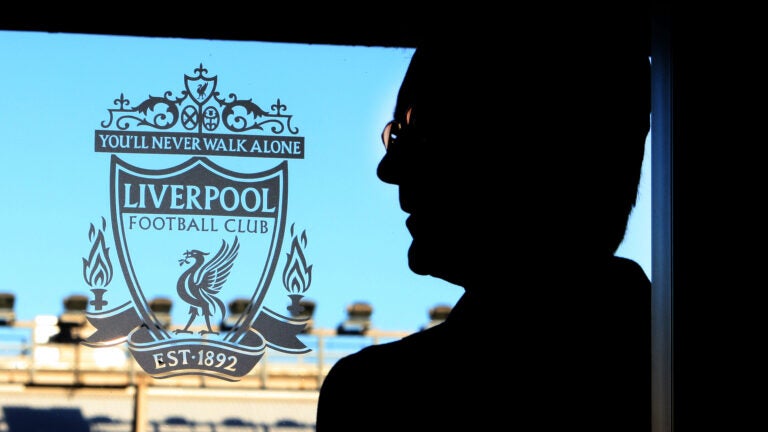Red Sox
The conspiracy theory received renewed interest on social media following the blockbuster trade.

Not long after the dramatic news broke that the Red Sox were trading star slugger Rafael Devers to the Giants on Sunday, a longtime conspiracy theory made a prominent return: Somehow, this was the fault of—or at least partly to do with—the Liverpool Football Club.
Both of the historic teams are owned by multinational sports holding conglomerate Fenway Sports Group, with John Henry as principal owner (Henry is also the publisher and owner of Boston Globe Media Partners). The financial actions of one team have periodically been seen by some fans as corresponding with the other, though actual evidence has always been scant at best.
Thanks to lifelong Boston fan (and sports media executive) Bill Simmons, the Liverpool-Red Sox spending comparisons roared back to life on Sunday following the Devers trade. In light of the Premier League champion’s recent splashy decision to sign German midfielder Florian Wirtz for a club (and British) record transfer fee of £100 million (or $135.9 million, with another $21.5 million in additional fees), Simmons couldn’t resist sharing his thoughts on social media.
“Hmmmmm,” Simmons said on X (formerly Twitter), sharing a screenshot of an article from The Athletic titled, “How can Liverpool afford Florian Wirtz?“
After the conspiracy theory shuttled around social media for multiple days, Red Sox Chief Baseball Officer Craig Breslow was asked pointblank about Liverpool’s spending perhaps necessitating the trade (and salary dump) of Devers. Boston’s deal ensured that San Francisco will pay the entirety of the remaining $271.153 million on Devers’ contract. Breslow provided a direct answer in response.
“That’s not just a stretch; it’s just completely untrue,” Breslow told “The Greg Hill Show” during a Tuesday interview on WEEI, per Scott McLaughlin. “In none of the conversations that I have with John, with ownership about our resources is the financial implications or situations of any of the other teams a topic.
“The Red Sox are run independently of any of those other organizations,” Breslow continued, “and the timing here was just a matter of lining up on getting the right players back and finding the right situation that represented a trade that we needed to make.”
Granted, Breslow’s credibility with Red Sox fans is not exactly sky-high in present circumstances, but a simple glance at available financial reporting regarding Liverpool’s current status essentially confirms what the Boston executive said.
Examining, for example, the article that Simmons shared (but may have neglected to actually read), Chris Weatherspoon of The Athletic provided a detailed overview of Liverpool’s financial situation. The club, Weatherspoon explained, achieved record revenue in the 2023-24 season (more than $800 million). In the most recent season, the Merseyside powerhouse notched even better on-field results, winning the Premier League and reaching the knockout stage of the UEFA Champions League.
“A further [revenue] record in 2025-26 looks likely,” wrote Weatherspoon. “The Athletic estimates Liverpool earned £181.5m ($244.3 million) through winning the Premier League and, even if they don’t retain the title in 2025-26, they will still benefit from an uptick in the league’s overall income. A new TV rights cycle starts this season, with the Premier League expecting to earn £12.25bn over the next three years — a 17 percent increase on the 2022-25 cycle.”
Comparisons of net transfer spend over the last five seasons place Liverpool in the middle of the Premier League, well below all of their major rivals.
And an earlier study from Weatherspoon in March led him to dub Liverpool “England’s most profitable club” over the last decade, a combination of shrewd transfer spending and profitable player sales. In other words, Liverpool appear to be able to afford Wirtz without any financial sacrifice from across the Atlantic.
The Red Sox, meanwhile, achieved a revenue of $574 million in 2024, according to Forbes. With Devers off the books, Boston now holds a projected 2025 payroll that is “relatively close” to the competitive balance threshold ($241 million), per MassLive’s Christopher Smith.
Sign up for the Today newsletter
Get everything you need to know to start your day, delivered right to your inbox every morning.
